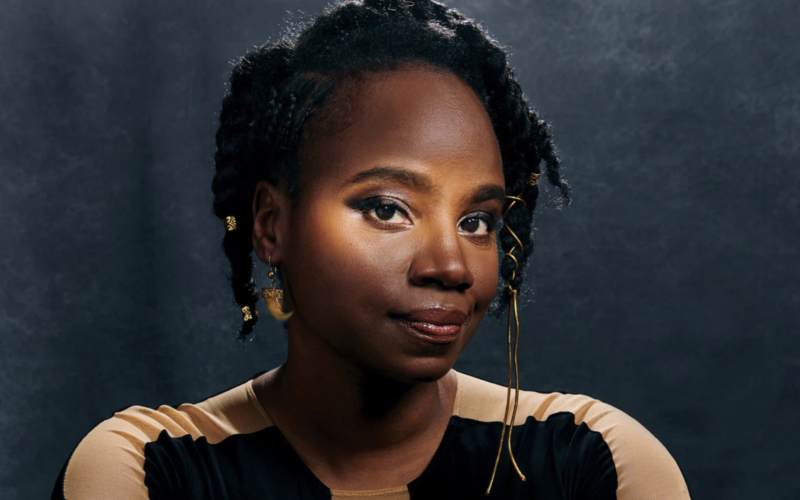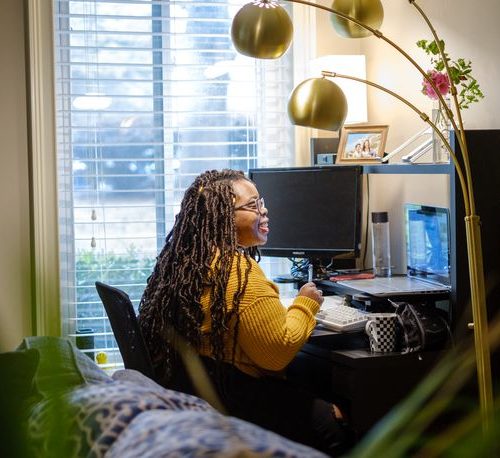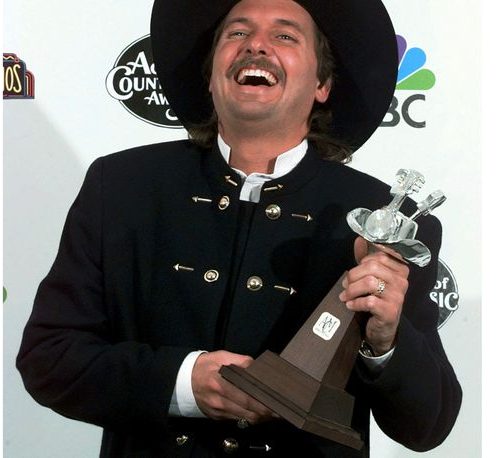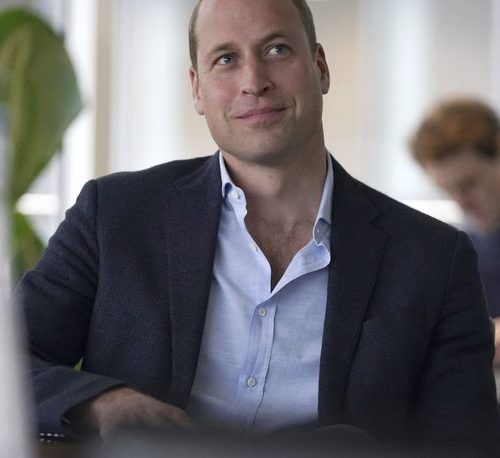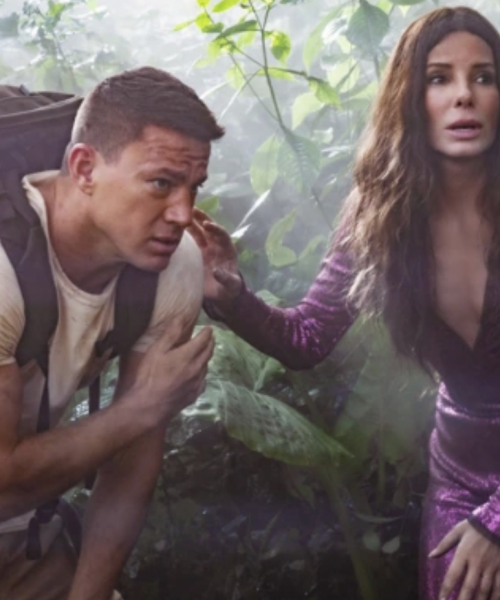BY REBECCA KEEGAN | HollywoodReporter.Com
Troy Warren for CNT
As Rees becomes the first African American woman to join the collection, the press-shy ‘Mudbound’ helmer talks about staying off social media, her hope that the Black filmmaking resurgence is more than a trend, and the joy of breaking new ground: “Maybe I shouldn’t have been first, but it doesn’t diminish the pride I feel.”
In 1995, while trying to buy a movie ticket, Dee Rees got an early lesson in the bias of film industry economics. Then a freshman at Florida A&M University, Rees went to the local multiplex in Tallahassee to see Dead Presidents, a crime drama about Black Vietnam veterans directed by the Hughes brothers, who were among a group of Black filmmakers making strides in the business in the ’90s, alongside directors like Spike Lee, John Singleton and Julie Dash.
“[The theater owners] weren’t selling out the theater,” Rees says. “They were saying, ‘We don’t want too many people in the theater at the same time. We don’t want any problems at this showing.’ They were actively suppressing ticket sales.” For Rees the memory serves as an example of the ways, subtle and overt, that Hollywood has often undervalued the work of Black artists. “That was during this blossoming of all these great Black filmmakers,” she says. “And even their stats got depressed.”
Twenty-six years later, Rees, 44, is part of another great flowering of Black cinema, one with more women and LGBTQ filmmakers behind the camera this time. On June 29, she will join an elite group within the film industry when the Criterion Collection releases her 2011 debut, Pariah, an acknowledgment that the $500,000 indie drama about a Black teenage lesbian belongs alongside films by Martin Scorsese, Alfred Hitchcock and Akira Kurosawa. Rees will be the first African American woman and the first queer woman of color to receive a Criterion release, which is considered a kind of unofficial canonization by film buffs. The only other Black female filmmaker in the collection is Martinique-born Euzhan Palcy, who directed the 1989 film A Dry White Season; Dash’s 1991 film, Daughters of the Dust, is available on Criterion’s streaming service but is not part of the official collection of more than 1,000 films that Criterion has remastered and reissued with special features on Blu-ray and DVD. In September, Criterion will release Gina-Prince Bythewood’s Love & Basketball.
“I maybe shouldn’t be the first,” Rees says, speaking by Zoom from the kitchen of the apartment in Harlem she shares with her wife, writer Sarah Broom. “Maybe it should have been Julie Dash. I would start with that acknowledgment, but it doesn’t diminish the pride I feel.”

In the 10 years since Focus Features released Pariah, Rees has written and directed two movies for Netflix — Mudbound, for which she became the first Black woman nominated for an Oscar for adapted screenplay, and The Last Thing He Wanted, whose reception from critics was much cooler, as well as HBO’s Bessie, which won four Emmys, including outstanding TV movie. She’s now at work on an adaptation of George Gershwin’s Porgy and Bess for MGM, is directing episodes of Cary Joji Fukunaga’s Apple TV+ World War II series, Masters of the Air, and holding on to a thick stack of unproduced original screenplays. “I had to be flexible to still be here, but I was determined to still be here, to last,” she says. “Just keep making shit.”
Criterion first contacted Rees about releasing Mudbound, which earned a total of four Oscar nominations, but Rees asked them to consider Pariah (Criterion will release Mudbound in the fall). “Pariah was the film of my heart, and to me, should be in,” she says. When Pariah premiered at Sundance in 2011, critics praised the authenticity of its writing; the warmth of lead actress Adepero Oduye, who went on to appear in 12 Years a Slave and The Big Short; and the craft of then-unknown cinematographer Bradford Young, who would become the first African American cinematographer to be nominated for an Academy Award, for his work on 2016’s Arrival, after which he shot Solo: A Star Wars Story in 2018. The Pariah filmmakers had used donated film from Kodak and cashed in favors to get heavily discounted color correction at Deluxe, so when Criterion provided the opportunity to remaster it, “We thought, ‘Oh, maybe we need to relook at it,’ ” Rees says. “But Brad checked it out and was like, ‘No, the color is fine. It looks great.’ ” The rough sound mix betrays Pariah‘s low budget, Rees says, but she opted not to change it for the Criterion release. “It felt beautiful as it was. And I wanted it to stay as we had crafted it.”

Rees grew up in Tennessee, and though Pariah is set in Brooklyn, the movie was semiautobiographical in its portrait of the protagonist’s family. Like Rees, the lead character, Alike, is the daughter of a police officer, and her parents are troubled by her sexuality. After Rees came out, as an adult, there was a period of time when she and her parents didn’t speak; when Focus acquired Pariah, Rees invited them to a screening and was wracked with anxiety. “There were parts of them in the characters, and so I was worried about what they would see,” she says. Rees’ lawyer found her crying in the bathroom, and coaxed her out to the theater, where her mother was talking to the film’s lead actress. “She was hugging Adepero and saying how amazing she was and how the story needed to be told,” Rees says. “I was like, ‘Mom?‘ ” Her father’s reaction was more reserved, but the film provided a catalyst for them to begin speaking again. “They saw that I wasn’t what they imagined a lesbian could be,” Rees says. “I wasn’t depressed and alone and in a bar. My dad said, ‘It looks like you have a lot of people around you that love you. And that’s all we ever wanted.’ ”
Pariah made a scant $770,000 at the box office and played in only 24 theaters, but it found an audience at film festivals and, eventually, on Netflix. Although international distributors had told Rees, she says, that “Black doesn’t play overseas,” foreign film festivals kept reaching out to her, including the South African Gay and Lesbian Film Festival, which was attended by LGBTQ filmmakers from some African countries where homosexuality is illegal. “When we played that festival I had the biggest sense of ‘Wow, coming to this film is an act of defiance,’ ” Rees says.

Rees had earned an MBA at Florida A&M, and started working in marketing after college, fashioning campaigns for practical products like panty liners and shoe inserts. “It shaped me only in that it made me very clear on what I don’t want to do,” she says. “Having survived a cubicle, I was super clear on why it’s better to be struggling in the thing that you love to do than to be having a solidity in something that is soul-sucking.” She had already been fired from two marketing jobs and was on thin ice at another when she had a life-changing revelation at a commercial shoot for Dr. Scholl’s DynaStep inserts. “They were positioning the actor on a pane of glass. And putting a camera under the glass to show him jumping up and down,” Rees says. “And I was like, ‘I want to do this.’ ” Despite being told by a PA on the shoot that she would never get in, she was accepted to NYU’s graduate film production program on the strength of a portfolio that included a short story she had written and photos she had taken on her grandfather’s digital camera, and ended up having Spike Lee as her professor. Lee later hired her as an intern on two of his projects, Inside Man and When the Levees Broke, and served as a mentor and executive producer on Pariah. From Lee she learned “that everything’s got to be on the screen. You don’t get to stand up front beside the screen and explain while it’s playing.” Even with Lee’s backing, though, finding financing for Pariah was an uphill battle. “No one really wanted to touch it,” Rees says. “People felt like, ‘This is a niche film. It’s not saleable. They thought that it was only going to play to Black lesbians.”
Through a mixture of grants, favors and the naivete of youth, she got the movie made and distributed. Looking back, she misses that naivete sometimes. “Pariah, I didn’t give a shit who saw it, if anybody saw it,” Rees says. “I think about the numbers now in a different way. And I wish I could forget that, unlearn that and not think about what’s commercial. I wish I could go back to ‘Just make it. And if one person sees it, it’s fine.’ ” Rees does tune out other measures of industry stature, however. When critics jeered at The Last Thing He Wanted, “I didn’t read the reviews but understand that it generally got trashed,” she says. “I didn’t read reviews for Mudbound or Pariah or Bessie either. I just generally know how it goes by what my friends and reps play back to me.”
Pariah didn’t win any guild awards or Academy recognition, and it came four years before #OscarsSoWhite. It was the success of another queer Black film five years later, Moonlight, that Rees believes helped her film find new viewers on Netflix. While promoting Moonlight, director Barry Jenkins praised Pariah, and on social media, audiences talking about Moonlight pointed one another toward Rees’ film.
The 10 years since Pariah opened have seen enormous change in Hollywood, from the emergence of streamers to the consolidation of traditional studios, and Rees feels that the kind of movies she’d like to make are becoming increasingly rare. “The film industry has changed in that in a weird way it’s become more transparent about the commerciality,” Rees says. “There’s no guise of ‘We’re trying to be artistic.’ It’s films of either $100 million or no million. The mid-range feels less possible. Amazon, Netflix and Apple have picked those things up. But it feels like there’s a bias in attention.” The pandemic, Rees says, revealed the importance of a theatrical release, for better or worse. “Being in theaters is really just about marketing,” Rees says. “And so all these good films still came out, but no one paid attention to them because they were streaming. Let’s reconfigure what we give our attention to. If there are no billboards, what do you want to watch?”
Social movements like #MeToo and Black Lives Matter have increased awareness in Hollywood about bias in hiring and greenlighting, but it was often white male executives and producers who forwarded Rees’ career, including former Focus Features chief James Schamus, former HBO Films president Len Amato, producer Cassian Elwes and Netflix co-CEO Ted Sarandos. “I’ve benefited from conscious executives who had vision and beliefs,” Rees says. “And were conscious people before these things came into wider discussion.”
The Criterion release includes interviews with Rees, the film’s cast and crew, and insights from Black female film scholars Michelle Parkerson, Jacqueline Stewart, Kara Keeling and Cassie da Costa. “We have to widen the canon,” Rees says of earning the exclusive distributor’s imprimatur. “There’s a blind spot in terms of the gatekeepers, of how we think about what’s important, what’s technique. Sometimes Black filmmakers, when we make something that’s great … there’s a feeling that you stumbled into it. Or they’re looking over our shoulder like, ‘Who is the person really responsible for this thing?’ “
In a New York Times story last summer, Criterion, a privately held, New York-based home entertainment company, came under scrutiny for the lack of diversity in its collection. “We have come to recognize that Criterion is seen as more than just a home video company, that we now play a role in shaping the perceived canon of film culture,” Criterion president Peter Becker says in an email to THR. “With that comes a responsibility to seek out a broader and more diverse array of voices both in our library and in the curatorial community that informs our work. We hope that the breadth of filmed expression in our disc release slate and on the Criterion Channel over the coming months and years reflects the seriousness with which we take that responsibility.” Pariah, Becker says, is “a great film with a depth of honesty and artistic integrity that have made it stand the test of time.”
While the industry’s recent drive toward inclusion is welcome, Rees is also wary. “I hope it’s not a fad,” she says. “I hope it’s not a trending thing. ‘OK, we did that.’ And in five years it’s going to be back to business as usual.”
Rees stays off social media (though she joined briefly during the pandemic to participate in Questlove’s DJ sets on Instagram). “I just feel like I’m too sensitive and it wouldn’t be good for me,” Rees says. When Pariah was coming out, Focus tried to convince her to get a Twitter account. “I was like, ‘I just can’t. I can’t jump in,’ ” Rees says. “There was never any point after that where I felt like, ‘Oh, I should have.’ That’s one thing I’ll just be behind on.”
In 2015, Rees married Broom, who received a National Book Award for her first book, the memoir The Yellow House, and the filmmaker calls their relationship “a balm.” “She’s always turning me on to something new,” Rees says. “Early on, I thought I had a bigger book collection. And that was our courtship, like, ‘I’ve got to get more books than you.’ And then she sent me the picture of the books just in her bathroom. And I was like, ‘Oh, holy shit. OK, you got me beat.’ ” During the interview in her kitchen, Rees is positioned in front of a bookcase and typewriter. “That’s her area,” Rees says, waving her arm. “One of her writing areas.”
During the pandemic, Rees began adapting one of her own unproduced scripts, a sci-fi story, into a graphic novel. Because of Mudbound and Bessie, she gets calls about historical biopics and dramas, but what she is dying to make is a sci-fi story, and writing and directing Kill All Others, an episode of Amazon’s 2018 Philip K. Dick anthology series, was an attempt to showcase her chops in that genre. She has never been asked to make a comic book film, she says, but would like to.
Rees has also been at work on the Porgy and Bess script, adapting the 1935 opera about Porgy, a disabled Black street beggar living in the slums of Charleston, South Carolina, and Bess, who is trying to turn away from her former life as a prostitute and drug addict. “It’s getting into the themes I want to talk about, like Black land loss and displacement,” Rees says. “It speaks to the timelessness of this love at odds with circumstance. Here’s this connection that’s good. Here’s this circumstance that’s not what we want it to be. And both those things can be happening. It will be a really interesting take if it gets done. Fingers crossed.”
Oduye, who first met Rees during an audition at NYU for the 2007 short film that would become Pariah, says, “Who Dee is now, she has always been. She was always so clear about her approach to storytelling and character, her specificity, her eye as an artist. So confident.”
Rees says she was faking some of that confidence when she was younger, but she isn’t faking it anymore. “The moment I left corporate America and went to film school, that was me being me,” Rees says. “I’m still the tomboy. My mom was always like, ‘Oh my God, can you please wear one dress?’ I’m like, ‘I’m not changing.’ ” In a classroom of 30 at film school, she says, “There was no one to imitate. So it was like, be the self that you want to be. Put on that swagger and just say, ‘Be the me that I want to live up to.’ ”
In Other NEWS


























